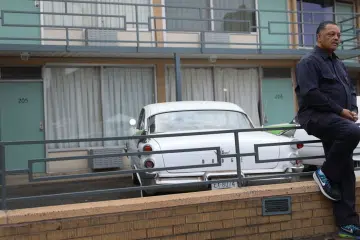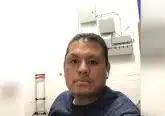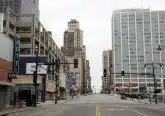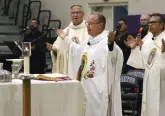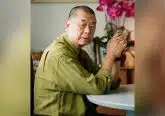California can’t omit churches from re-opening plans, Justice Department says
Washington D.C., May 21, 2020 / 12:50 am MT (CNA).- California Gov. Gavin Newsom’s efforts to lift some anti-coronavirus restrictions cannot single out churches for stricter treatment than other similar public activities, the U.S. Department of Justice has said.
“Simply put, there is no pandemic exception to the U.S. Constitution and its Bill of Rights,” Eric S. Dreiband, head of the U.S. Department of Justice’s Civil Rights Division, said in a May 19 letter to Newsom joined by four U.S. attorneys for California.
“Religion and religious worship continue to be central to the lives of millions of Americans. This is true now more than ever,” the letter continued. “Religious communities have rallied to protect their communities from the spread of this disease by making services available online, in parking lots, or outdoors, by indoor services with a majority of pews empty, and in numerous other creative ways that otherwise comply with social distancing and sanitation guidelines.”
California’s rules allow restaurants and other businesses to reopen under social distancing guidelines, the Associated Press reports. Churches, however, are still limited to online services and similar efforts.
The letter to Newsom objected that this is a double standard.
“California has not shown why interactions in offices and studios of the entertainment industry, and in-person operations to facilitate nonessential e-commerce, are included on the list as being allowed with social distancing where telework is not practical, while gatherings with social distancing for purposes of religious worship are forbidden, regardless of whether remote worship is practical or not.”
Dreiband’s letter said this is an “unfair burden” on religious groups and “unequal treatment” that violates their civil rights protections. The letter does not threaten immediate legal action. It recognizes the duty “to protect the health and safety of Californians in the face of a pandemic that is unprecedented in our lifetimes,” but said leaders must balance competing interests and evaluate the changing information about the coronavirus.
“Laws that are not both neutral toward religion and generally applicable are invalid unless the government can prove that they further a compelling interest and are pursued through the least restrictive means possible,” the letter said.
Newsom has indicated religious institutions could start in-person services in the near future, with improvements in measurements of testing, infection, and hospitalization.
“I want to just express my deep admiration to the faith community and the need and desire to know when their congregants can once again start coming back to the pews, coming back together,” Newsom said May 18, Politico reports.
Two Republican legislators have introduced a resolution to limit the governor’s emergency powers. Assemblymember Kevin Kiley said such powers are meant for “conditions of extreme peril” and are not intended to “give a single person the ability to remake all of California law indefinitely.”
In Sacramento County, health officials have received state approval for a more rapid lifting of limitations. The county will allow “drive-through” religious services. San Diego County supervisors have asked the state for permission for a more rapid reopening, including outdoor religious services with restrictions, the Associated Press said.
Some churches in the U.S. and South Korea are believed to be at the center of so-called “super-spreader” events, when numerous infections from the novel coronavirus result. On May 12, the Centers for Disease Control said 53 of 61 choir members who took part in a March 10 choir practice at a church in Skagit County, Washington contracted a confirmed or probable case of the coronavirus. Three singers were hospitalized and two died, E.W. Scripps News reports.
Dreiband’s letter to Newsom cites the Department of Justice’s promise to act on any abuses of religious freedom after some state and local governments sought to enforce tough restrictions on Easter services during the coronavirus pandemic.
Attorney General William Barr issued a statement in mid-April saying that governments cannot put special burdens on religious practice that they do not also impose upon other activities. While state and local governments may enact public emergency restrictions, these regulations cannot impede religious practice while allowing exemptions for similar public activities.
Archbishop Salvatore Cordileone of San Francisco spoke about epidemic restrictions on churches during a May 13 online briefing “The Church, the State and the Pandemic,” hosted by the San Francisco-based Benedict XVI Institute for Sacred Music and Divine Worship. Stanford Law School professor Michael McConnell, a former federal appellate court judge, was the main speaker at the briefing.
The archbishop, citing his interactions with government leaders, suggested public officials “don’t understand what we can do to keep people safe.” Church leaders need to reach out to officials and inform them what is possible, he said.
“When they think of a worship service they think of something like a megachurch, 1,000 to 2,000 people jammed in a crowded area,” he said. “They don’t think that we can have distance in our churches, or that we can have outdoor services.”
Cordileone cited suggestions from the Thomistic Institute of the Dominican House of Studies, which published guidance on coronavirus and churches composed by a working group of theologians, liturgists, and health care experts.
“It’s a very thorough and detailed document about what we can do to open up for Mass,” Cordileone said.
The California bishops sent a letter to Gov. Newsom with the Thomistic Institute document attached. A few days later the governor “spoke positively about worship and the necessity of faith” and appeared “more favorable to churches opening up for worship,” said the archbishop.






